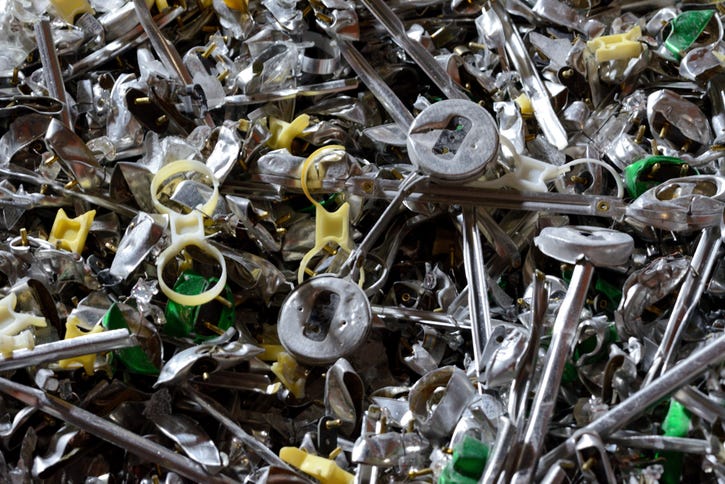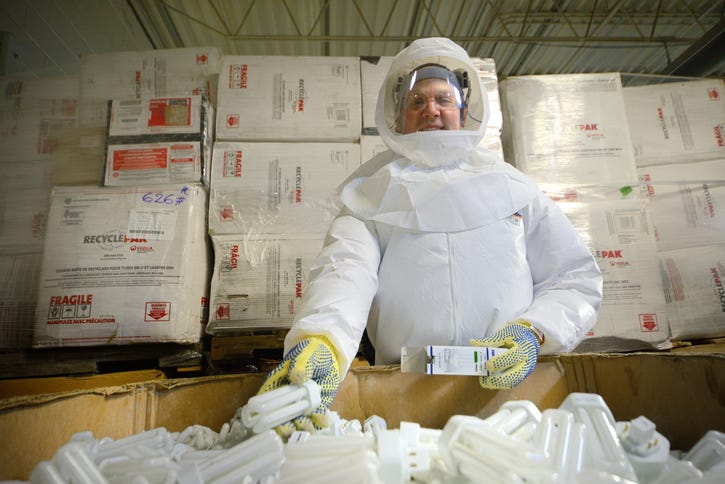Veolia Aims to Make E-waste Recycling Easy with RecyclePak
Veolia’s RecyclePak is a mail-back program for commonly generated waste, such as fluorescent lamps, batteries, computer electronics and mercury-containing items.

In the midst of the holiday shopping season, retailers are showcasing the latest technologies and electronic gifts and gadgets. In with the new means out with the old. But how are retailers disposing of unsold electronic inventory, and where does all the e-waste end up? Most often, it seems, e-waste still finds its way to the landfill.
According to a United Nations University report, “The Global E-waste Monitor 2017: Quantities, Flows, and Resources,” “by 2016, the world generated 44.7 million metric tonnes of e-waste and only 20 percent was recycled through appropriate channels.”
One company has sought to increase e-waste recycling by making collection and processing simpler, more efficient and safer for both companies and consumers. Veolia’s RecyclePak is a mail-back program for commonly generated and universal waste, including fluorescent lamps, ballast, batteries, computer electronics, dental waste and mercury-containing items.
Veolia offers larger-scale e-waste recycling services for a variety of industries, but the RecyclePak program enables a household or small company to send e-waste to one of Veolia’s recycling facilities across the country, where the materials are then processed. The goal is to make e-waste recycling less complicated, with the objective of getting more consumers and companies to buy into the effort.

“RecyclePak helps to make consumer recycling easier. The number one challenge with consumer recycling is that the channels available for consumers are not many,” says Bob Cappadona, president and chief operating officer of Veolia North America.
For the most part, even when consumers want to responsibly recycle their e-waste, they don’t always know how or where to do so. “People want to recycle, but you have also got to make it relatively easy and cost effective for them, and in many cases, it is not,” says Cappadona.
RecyclePak is one way to make consumer recycling more accessible, but Cappadona encourages consumers to advocate for retail-based recycling programs as well. Before making a purchase, if consumers were to ask retailers if they offer the option to bring back electronic items for recycling, that could help move the needle and change retail practices as well.
In retail stores, too often, electronics get thrown away that could be recycled, says Cappadona. For unsold or damaged inventory, retailers should ensure that they have a way to effectively store the items and then properly recycle the material. Ideally, too, as noted, they should have a collection point where the public can bring in their materials, says Cappadona. He points to Lowe’s and Home Depot’s recycling programs as good examples.

For small- to medium-sized companies, the RecyclePak program also offers a way to efficiently comply with waste disposal regulations. One of Veolia's values is offering “compliance with confidence.”
At its recycling facilities, the materials are dismantled and recycled or prepared for processing by one of their recycling partners. “We work with others who may be able to recycle some specific types of materials better than we can, and we ensure that they are doing it in an appropriate manner as well,” says Cappadona. “We have tried to demonstrate to our customers that we will handle materials in the right way and provide a level of confidence.”
With RecyclePak, Veolia hopes to make a big impact on a growing problem.
About the Author
You May Also Like


